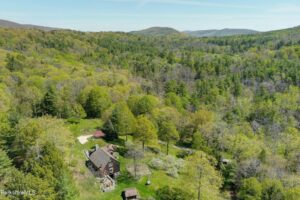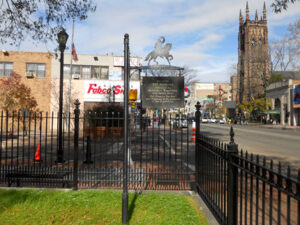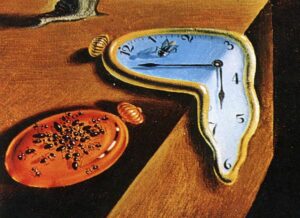Americanism Redux
February 16—Life and the American Founding—250 years ago today—in 1773
Around the room.
You see smiles, bright faces, hopeful looks. An invisible buzz is in the air in this church meeting house near the Green River and a mountain one day called Tom Ball. Someone calls out a name: Alford! A cheer goes up, words of prayer softly spoken. Today is the birth of a new town for more than 250 people in the newly organized and named town of Alford, along the western border of the colony of Massachusetts. John Alford, sometime professor, sometime militia officer, and sometime preacher to a local Mahican Indian tribe, would have been proud. He’s been dead for a dozen years but his name is reborn in the new hometown of 250 people, 250 years ago today. Quite an honor.
(in the distance, Tom Ball Mountain of the Berkshires)
Around the room.
250 years ago today, this room has a scent in the air. It’s a combination of firelog warmth and bundled-up teenaged boys. The warmth comes from the fire burning in the hearth at the back of the room. On the windows frost turns moist, making tiny beads that, when big enough, trickle to the bottom of the glass panes. At the front of the room stands Mr. Barber, Francis Barber, who has finished teaching the morning’s Latin and Greek and now orders the boys to open their books. Sounds of rustling, soft thuds, and turned pages follow. Barber waits for the settling-in. He is patient, then begins to instruct them in English literature and composition. Later, different books come out for math and geography. When it’s all over, the walks back home begin in the dim afternoon of winter. One of the young students is a long way from his sunny island home in the Caribbean Sea. Barber knows the boy well, the youth called Alexander Hamilton, often spending extra time with him. Barber expects Hamilton and every other boy in the room to end this semester and be ready to attend college in the fall, be it in Boston, Philadelphia, or New York. That’s the mission of Barber’s Academy in Elizabethtown, New Jersey, whose previous schoolmaster had married a woman named Burr.
(site of the Old Academy, Elizabethtown, New Jersey)
Beyond the rooms, from town to town, north or central or south, today 250 years ago marks one more moment in a continuing stream of moments. These episodes aren’t isolated or minor. They bunch together into a collective unease, disenchantment, and combustibility that exists just about everywhere on this winter Tuesday.
Tensions are trending. In Boston John Adams again publishes in a newspaper a long, intricate essay about who has the right to appoint and remove judges, the local people or the London-based monarchy. Don’t let the essay mislead; anger is clear in the newsprint. A minister living not far from Adams records in his diary that two of his dinner companions get into an intense debate about the judges as well as the monarchy-leaning Massachusetts Governor Thomas Hutchinson. The minister also reads in a newspaper about his town’s, Westborough’s, reaction to the Samuel Adams-led Committee of Correspondence in Boston and its call for stronger defense of colonial rights. This Adams, like the other, speaks and writes with insistence, urgency, and resolution. In Hartford, Connecticut a writer named Rover submits an article about a troubling rise of wealth and greed in local people: “O my countrymen, ye cry let us get money first, and then be virtuous.” We’re headed for calamity if it keeps on this way, he implies. Further south, in Maryland, bitter debate has become apparent hostility—local leaders insult each other and assume every motive of villainy and darkness imaginable in proposed changes for inspecting tobacco—which is both a crop you sell and a currency you use for purchases, an issue at the root of life. The tones are so bad a female newspaper publisher, Catherine Green, writes of reports that threatening letters have been left at the houses of targeted people. She’s worried for herself, for her son the co-publisher, and for her community.
So, yes, a new town stirs excitement among its residents and a successful school has upcoming graduates with eager minds. But what will be true in the townspeople’s first year together? And what will be true for the students pursuing their education in the autumn?
Is your future an extension of your present?
(close-up from The Persistence of Memory, by Salvador Dali)
Also
Today, 250 years ago, the news carried aboard ships from England carry fuel in the form of answers. In these ships and on these pages of letters and books and newspapers come a different voice for the future. It’s the voice of the past.
Gathered as long ago as late November of last year, it’s taken anywhere from six to ten weeks for the ships to get where they are going with the items they are bringing. Which means they bring written items that are older than that.
From late November: in Parliament the House of Lords thanks King George III for his diligence and pledges to examine the inner workings of the East India Company, asserting “we will not neglect an Object of such national Importance.”
From undated and unsigned: an essay entitled “On the present state of parties in England.” The reference is to political parties that are pro-King’s court of advisors and hacks or anti-King’s court of advisors and hacks. The most disturbing part of the essay is this: “Real Patriotism is unknown, and the Love of our Country is used as a Cover for a Principle of the basest Kind.” Translate it and the real disturbance will strike you: meaning, everyone uses patriotism as the outer image for an entirely selfish inner gain—trust no one and believe no one because everyone is seeking their own advantage.
A layer of disturbance on a mood of discord. That’s what the ships dragged in.
(unloading)
For You Now
Spend much time in anything outside of yourself and you’ll see the same mood and layer now, in 2023. And of course the same setting applies—you’re in the present moment and looking out on a future, perhaps the rest of the year, perhaps further, and you see an engulfing void and an absence around a small set of fixed objects. From then to now your present moves ahead, inch by inch, minute by minute, filling in the open space with a choice, a consequence, a continuance, a change. From our story above I’d add this to the 4-C mix—the layer and mood.
Sure, a big difference is true from us to them. Unlike then, our arrival of layers occurs in an instant, even less, via technology in your hand. This fact gives a rush to things, an acceleration of rotation to the point of spinning. The spinning is so fast the original conditions separate and re-position. The spinning feels so constant that knowledge of the conditions seems insecure and unreliable. What’s left is what clings.
But one day the ship arrives with the written items that no one can ignore. The ship fits your palm and the writing is a gleaming image behind a screen. The arrival pace won’t matter to your eyes, though your mind take note. But to eye and mind alike the vital point will be the undeniable importance of the arrived. And that emptiness and vacuum at the forward edge of your present day will be filled to overflowing, a river over the banks. Until then, you’ll add the layer and feel the mood.
A new town harkens to the ghost of John Alford. A restless soul seeks a future for Alexander Hamilton. And the ships will come in.
(arriving)
Suggestion
You and the layer today. You and the mood today. Think through where you, and they, are and then turn toward that vast space ahead of you, just out of reach of your outstretched hand.













